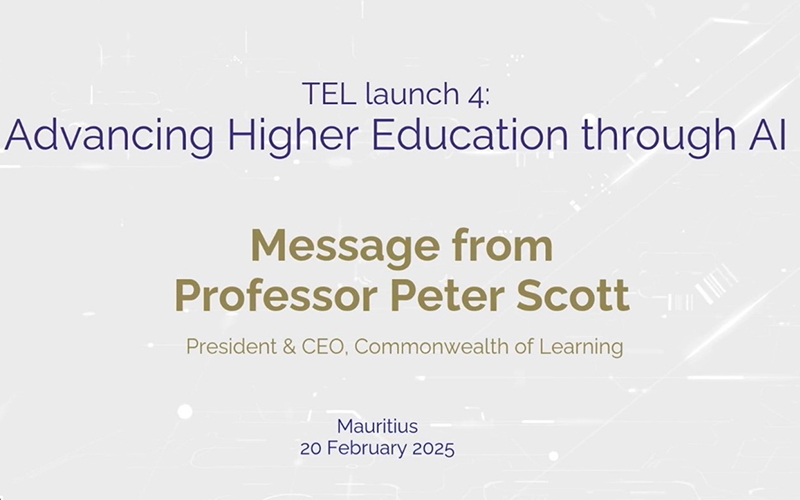
The Higher Education Commission (HEC) of Mauritius, in collaboration with the Commonwealth of Learning (COL), recently launched Phase 4 of the Technology-Enabled Learning (TEL) initiative, marking a significant step forward in integrating Artificial Intelligence (AI) into higher education. The event, attended by the Honourable Dr Kaviraj Sharma Sukon, Minister of Tertiary Education, Science and Research, and Dr Romeela Mohee, Higher Education Commissioner, highlighted Mauritius’s ongoing commitment to advancing education through innovative technology.
In his virtual address, Professor Peter Scott, President and CEO of COL, congratulated the Mauritian government and the HEC for their leadership in this transformative partnership. “Mauritius has been an exemplary collaborator,” he noted, emphasising COL’s longstanding support for the nation’s education sector. Since 2022, COL has aided in establishing quality standards for institutional registration and programme accreditation, supported the development of an open educational resource repository at the University of Mauritius, and facilitated the adoption of blended and online learning across multiple institutions.
Now entering its fourth phase, the TEL initiative has yielded impressive results. Over 80 blended and online courses have been developed, with more than one hundred teachers trained in course design and the use of open educational resources. All six of Mauritius’s higher education institutions have adopted supportive policies, and over 1,700 educators and students have completed the Commonwealth Digital Education Leadership Training in Action (C-DELTA) programme, earning certificates and badges. The Mahatma Gandhi Institute has also introduced short courses from COLCommons to enhance teacher development.
Phase 4 focuses on integrating AI in teaching and learning, responding to the technology’s growing prominence. Alongside AI literacy and regulatory frameworks, the phase will introduce benchmarking to enable institutions to assess their progress, share best practices, and refine their strategies for technology-enabled learning. Evaluative research is also underway to measure the impact of blended courses on student outcomes, promising data-driven insights for future advancements.
The event also celebrated the release of a booklet detailing the impact of COL’s Skills for Work Programme in Mauritius, which Professor Scott described as a testament to the collaboration’s success. “This participatory approach is poised to revolutionise education in Mauritius,” he said, extending an invitation to the Eleventh Pan-Commonwealth Forum in Botswana in September 2025.
With the implementation of Phase 4, Mauritius reinforces its position as a leader among small states in leveraging technology to enhance higher education, setting a model for others to follow.
Full video address by Professor Scott here: https://www.youtube.com/watch?v=CYiJbHN1Hks


